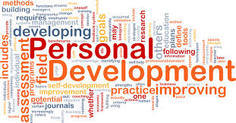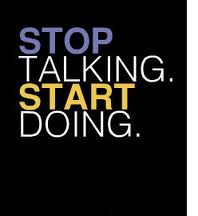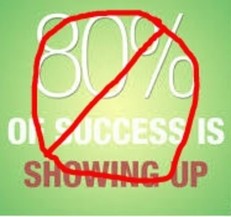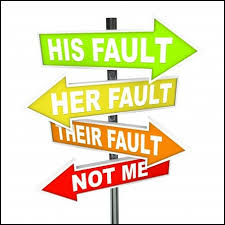 Noted success guru, Brian Tracy, famously said for every dollar you invest in your personal development you add thirty to your bottom line. $30 earned for every dollar spent, not a bad return! Frankly I think his math is light. Every time I've invested in my personal development and then applied what I've learned, I've earned far more than $30-to-$1. It's when I haven't applied what I've learned that it's a negative. The greatest salespeople, companies and athletes in the world hire the most expensive coaches, consultants and advisors. Why? Because they know that investing in themselves is what got them to where they are, and they know they need to keep doing it to grow and stay at the top of their game. Here's the point, the more you invest in yourself, the more life will pay you back. Your success, or lack thereof, is largely determined by the investment and commitment your willing to make in yourself. Most people, and I mean the overwhelming majority, are not willing to put the extra effort in. That's why they're doomed to a life of mediocrity. Jim Rohn would say, “If you want to have more, you have to become more. You have to grow into your goals.” It's your choice, invest in yourself or die with the rest.
0 Comments
 Achievers are dime-a-dozen. Super-achievers are not. They are one-in-a-billion! What separates the simply good from the absolute masters? Well a lot of course. There are many distinguishing factors. Ask the super-achievers to give you just one insight and they'll all tell you you're managing time wrong. You're managing time, and they own time. How do they own time? They've determined their highest 3 or 4 priorities, and only focus their efforts and time on those. One of their biggest secrets is the word "no". No has tremendous power to focus you. No has the power to shape where you commit, and perhaps more importantly, what you don't commit to. For example, when you say yes to happy hour, vegging-out on the couch, one more drink, etc. you're defining your lack of care for your time. Saying yes to these or any other non-priority item steals from your time, steals from your success and steals from your life. Saying no has tremendous power to control your focus. It's not about being difficult. It's about being respectful to your future, your success and your fulfillment. Take Steve Jobs as an example. He was asked what he was most proud of at Apple. His response was, he was just as proud of what Apple didn't do as what Apple did create. In other words, he said no to things so he could provide what Apple delivers you today. Saying no is hard. Sometimes it just feels great to lounge around and take your foot off the gas. Super-achievers feel the same way. The difference, they choose too say no to what others say yes too out of respect for their future. That way, they have the time available, so they can say yes to sow thing truly impactful and fulfilling that contributes to their highest priorities. Saying no is a skill that you must learn and practice. Decide what are your top 3 or 4 priorities in life. Then start saying no a little at a time each day to action, activities and events that don't contribute to the success of your priorities. One directed "no" each day can start turning you from simply good to great!  In sales and life you are constantly met with gatekeepers. Gatekeepers are those people or forces designed to keep you from your success, whatever that success may be. Maybe you need to reach a new prospect and the assistant won’t let you through, or maybe you’re on the quest to loose weight and the chocolate cake is calling your name. Whatever the success desired, some obstacle or gatekeeper stands in your way. Do you know who the real gatekeeper is though? It’s not who you think. Sure in sales it’s a person or voice mail system or some similar element. Those are easy to get past if you’re committed, persistent and creative. What about in the rest of your life? Who is the real gatekeeper? The answer is identical whether for personal successes or sales and business successes. The real gatekeeper is YOU. You are the #1 person standing in the way to your success. You prevent you from getting ahead in every area of your life. Why? Your mental state blocks you from taking the appropriate actions to succeed. You know what to do. The challenge is you don’t always do what you know. The pain of taking action is so great at times, that the pleasure of pushing it off and making excuses becomes too easy. You self-sabotage, and all self-sabotage is mental. Your mindset is the real gatekeeper. Go to work on programming your mind to give you massive amounts of pleasure from taking all necessary actions. Read positive information. Write and review your goals daily. Surround yourself with people more successful than you. Do whatever it takes to kill the real gatekeeper - your mental gatekeeper - and your life’s ambitions will start becoming your life’s successes.  Have you ever stopped and reflected on some of the comments people make in conversation? If you really pay attention you’ll start hearing some really dumb comments, and they’re usually justifications for people not succeeding. When you hear these comments, do you ever reflect on what the real intended meaning is, or do you play along and go along with the heard mentality? So what are some of the dumb statements, and what do they really mean:
 Ever hear anyone say, or have you said, 80% of success is just showing up? First of all some supposed “expert” made a version of this statement many years ago, and that statement was taken out of context. Second, because it was taken out of context it’s lost all meaning. Most importantly though, what a load of crap! 80% of success is not just showing up. Just showing up is only 10%. The other 90% is working you ass off. Anybody can just show up, but not just anybody can show up and win. Yes you need to show up to play the game, to win, to fight, etc. Showing up gets you 10% of the way there. The other 90% is the real magic. It’s commonly disguised as “work”! 100% of success can be in showing up if, and only if, you adhere to the following:
Most, not all of course, people who make these silly type statements that 80% of success is just showing up have never achieved anything - nor will they ever. That’s because they’re living and believing falsehoods. The only percentage you need to live by is the 100% rule, i.e., commit 100% and go all in.  On most companies financial statements Training is a line item on the Income Statement. It’s viewed as an expense because of the cost. Isn’t training supposed to help make things better or improve skills and productivity? If training is making things better and improving productivity, and maybe even morale, is training really an expense? The answer is yes and no. Training is an expense if it’s not followed through on. Training is an expense when you don’t have team buy-in. Training is an expense when you talk to the bean counters. On the other hand, what if the training works? What if productivity rises, what if morale improves and what if the training results more than pay for the expense? Isn’t training really an asset that belongs on the balance sheet? Two different views and two different outcomes, but they both are determined by the same factors. Who set the training up, what’s the attitude towards improvement and how can you sustain, condition and maximize the training. Training is the best investment you can make in your company and team. You must start with the right attitude and execute and follow through on what you learned. Training is an expense, and it becomes an immediate asset the moment you take steps to implement what you’ve learned. While you’ll never get your accounting team to remove it from the Income Statement, you can show them how it’s worth a whole lot more by maximizing the return on investment. Finance people often object to the merits of training, because all they see is the bill. Show them the merits, and start the conversation with one simple question… …what’s it going to cost us and our overall business if we don’t keep improving? In sales, you’ll lose. In employee morale, you’ll lose. In management skills and worker attitudes, you’ll lose, and in overall productivity, you’ll lose. Bottom line, training is an asset. It becomes an expense the minute you view it as an expense and your competition views it as an asset. They win, you lose.  Have you ever run a sales appointment and didn’t sell it, or know someone who has been in that position? Ever hear this - it wasn’t my fault, they couldn’t afford it, they didn’t understand, they want to think about, etc.? Is that any different than when you or someone else makes an excuse for not following through, not finishing, or not succeeding? Obviously not. What these excuses have in common are the victim mentality, and they’re all BS excuses - nothing more. The victim mentality aims to place blame everywhere except where it belongs, squarely on the victims shoulders. The reality is if you or anyone has any involvement then they or you are responsible for the results and outcome. You can place blame and deflect all you want, but at the end of the day, you’re playing the “poor me I’m the victim card.” In life you get to choose whether you’re going to be the victim or the victor. The victor accepts 100% responsibility for everything in their life. They know that if they are involved, they have the ability to influence and make a difference. If they fail to succeed they don’t blame others. They self-reflect opposed to self-absolve. Victors don’t blame lost sales on others. They find their mistakes and fix them. They don’t blame their weight on others and the fast food restaurants. They go out exercise, make smarter food choices and take responsibility for their future. They don’t blame their financial situation on the economy. They go out, step up and find a creative alternative. Being a victim is your choice. Being the victor is also your choice. It’s not a fine line. It’s a very defined solid line. It requires character on your part. So, do you have the character to be the victor, not victim? Here’s a huge secret to your success - get around other victors. They’ll show the way.  Every single day, each and everyone of us has a routine: bathing, grooming, eating, the route we drive to work, our work activities, and so on. We live and die by our routines. They make us healthy or sick, clean or dirty, productive or unproductive, and successful or unsuccessful. So that begs the question, what’s your routine for success conditioning? Can you be successful with just a few activities peppered in here there and the next place, or does it need to be routine? Let me provide a reality check, unless you make it part of your actually daily routine, success will never happen. Success, motivation, good health don’t exist and aren’t sustainable without constant focus. In fact they will disappear if you don’t give them daily attention. That’s why we say success and motivation are like bathing. We recommend you do them and their associated support activities everyday. What should you add to your routine? That’s up to you and what type of success you’re after. Do you want better health? Then you must incorporate some form of fitness, nutrient-rich foods, and cut out the sugary crap from your daily life. Do you want greater professional success? Then everyday focus on improving your skills, increasing your knowledge, mastering sales and negotiating skills, etc. Your success routine will be entirely dependent on what type of success you desire. My recommendation, find someone who’s achieved the success you want and copy their daily routine. To be effective, to stay motivated and to be successful, it must become a constant daily conditioned lifestyle - just like bathing or it won’t last. Everyday schedule yourself with activities designed to move you forward, to stay motivated and to not lose momentum. It’s easier to maintain than to re-start. Keep momentum on your side, incorporate success and motivation rituals into your daily routine, and keep moving forward.  Experience is expensive and you always pay up front. I’ve been taught that statement, learned that statement repeatedly and come to believe that statement until someone smacked me in the head to correct me. Yes experience is expensive, and yes you do pay up front. But who said you have to be the one to pay the price? Why can’t someone else pay the price? Look at it this way - someone already invented the wheel, so why are you going through all the growing pains to reinvent the wheel? That’s absolute insanity. Someone, somewhere has already solved the problems and challenges your facing. Odds are they probably solved them honestly and ethically and know the success formula to give you the same results. It makes sense then to go out, find these people and do exactly what they’ve done. You should get exactly the same results with none of the aggravation, pain and effort required. Why then don't we do this, and what can we do about it? We as professionals, and people on general, tend to over-complicate everything. We feel perceived as more important and hard working if the processes are complicated. This thinking is both ignorant and wasteful. Talk to any if the most successful people and they all tell you one of the biggest secrets is simplification. They know that results are more impressive than the appearance of hard work. To solve your challenges you need to shift your approach and take the the following 5 actions:
Experience IS expensive. Let someone else pay the price. Implement the solutions of other successful people and get what they've got without all the pain and financial challenge.  The paradigm has shifted, and that phrase should probably be just as dead as the following - it’s no longer what or who you know. That old business adage is dead. Today it’s who knows you and how they know you. Why? The answer is social media. Everyone has a voice, it's free and it's global. For the first time in history it's never been easier to market and brand yourself how you want to be seen. The challenge is most people aren't giving it much thought or the right thought. They're out there posting the wrong messages and in some cases no message at all. Facebook, Twitter, LinkedIn, Instagram, the list goes on. What message about you are you promoting on your social media channels. Are you serious, funny, a clown, a giver, a taker, what? It doesn't matter who you know. What matters is how you are perceived, and you know perception is everything. The truly successful people have learned that the secret is giving and being known as a giver. These people are constantly putting out content that adds value to their networks and they are always looking for ways to help others succeed. What they get in return is immeasurable, and they do get rewarded millions of times over. So what image are you portraying and how are you known? Social media is here to stay. Control your voice and your image. Start projecting your brand in a way that gives and puts your best foot forward across all your social media sites. |
Welcome!Our Team is here to make you, your sales team and/or your business more successful through our customized sales training, professional development seminars, results workshops, and corporate motivational speaking. Archives
April 2018
|



 RSS Feed
RSS Feed
